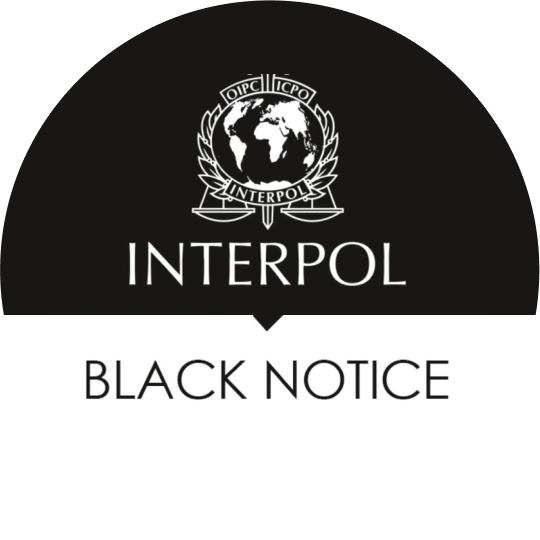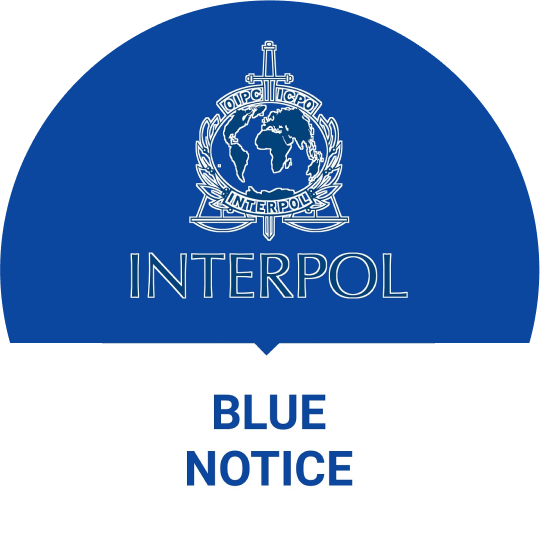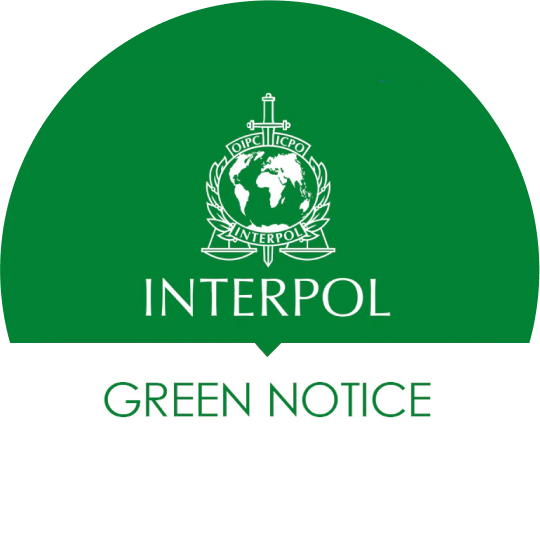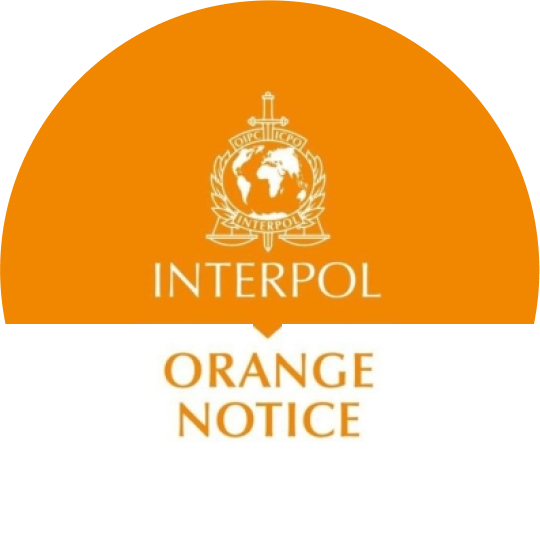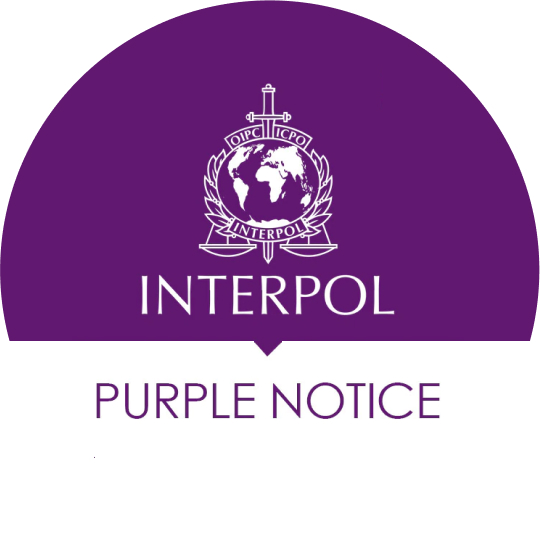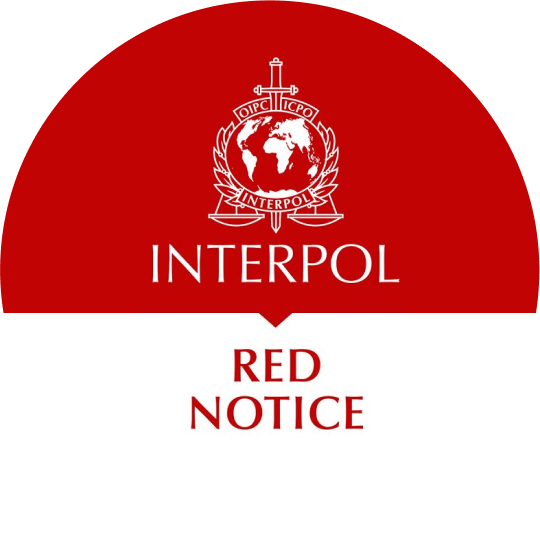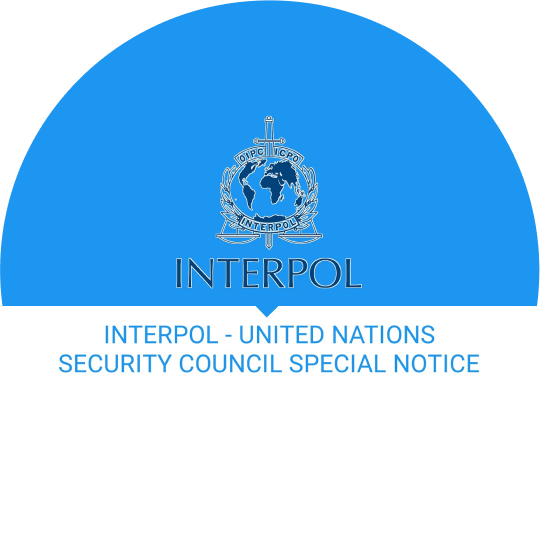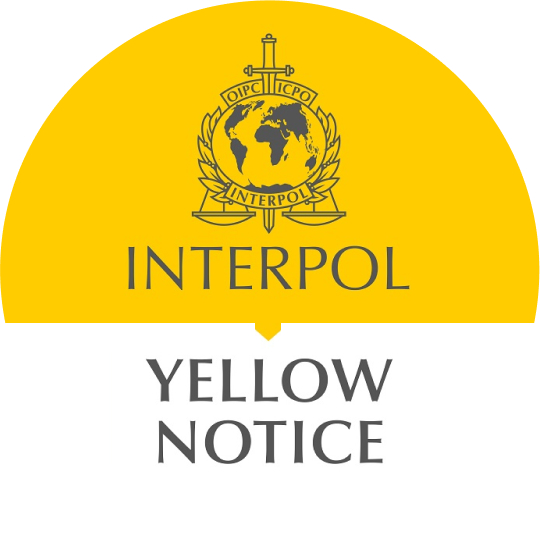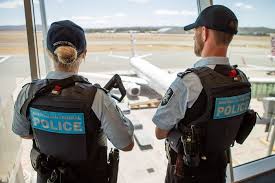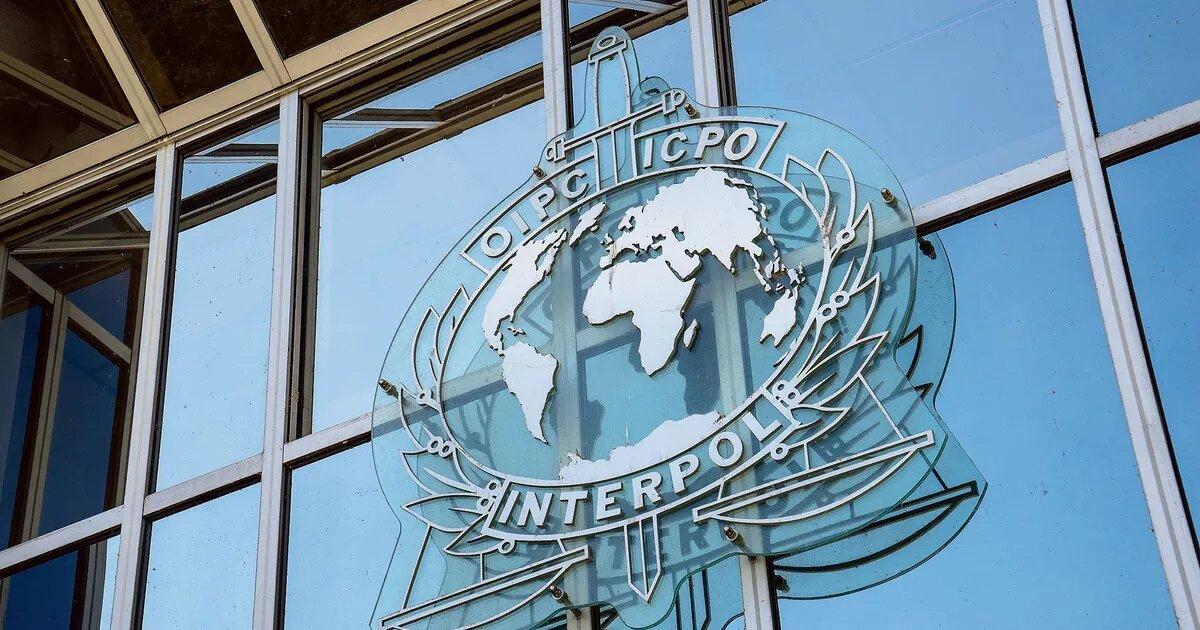It is important to note that INTERPOL is not a police force and cannot arrest individuals. Neither can it investigate crimes. INTERPOL only helps police officers around the world to cooperate and arrest criminals.
The INTERPOL’s databases and communication channels are vital in enabling police officers in member countries to cooperate as they hunt down offenders. INTERPOL issues Red Notices and Diffusions to circulate information about criminals.
What is a Red Notice?
A Red Notice contains the details of individuals wanted for extradition or surrender. INTERPOL stores it on its databases, and law enforcement officers worldwide can see it.
If an offender in one member country flees to another country, the National Central Bureau (NCB) can request INTERPOL to circulate that information. Immigration officials and police officers in the member countries will be on high alert to arrest the mentioned person.
The Red Notice contains information like name, age (date of birth), pictures, and nationality. The alleged offenses are also listed therein.
What is Diffusion?
A diffusion is a notice that INTEa country shares with other member countries through INTERPOL’s databases. It resembles a Red Notice but doesn’t have to get the approval of the General Secretariat before being released to other countries.
Therefore, a diffusion can still get circulated even if it doesn’t contain all the information. This means that the General Secretariat wouldn’t approve its circulation if it were a Red Notice.
A given country can write to specific member countries (or all members), informing them that it is looking for a particular offender in those countries.
Anyone with a Diffusion or Red Notice can get arrested in their home country or while traveling abroad.
How to Know if There is Red Notice or Diffusion Against You
You can find out through several methods:
INTERPOL’s Website
When you visit INTERPOL’s website, go to the “Wanted Persons” section. Extracts of some red notices are available in this section. INTERPOL lists the names of offenders ad the crimes they committed. For instance, theft.
Remember that the website lists only some of the Red Notices. Some names are listed on the Red Notice available to the restricted networks accessible only by law enforcement agencies. Also, INTERPOL’s website does not display diffusions.
The Commission for the Control of INTERPOL’s Files (CCF)
The CCF’s mandate is to ensure that data processing at INTERPOL follows the outlined data protection rules. You can write to CCF’s Requests Chamber, asking them to allow you access to your file. However, there are no guarantees that you will be granted access to the data.
CCF states that the information in their databases belongs to the NCB that submits the information. The NCB can request CCF not disclose any information to anyone. Some reasons for the NCB to ask CCF to withhold information include:
· Enabling law enforcers to discharge their duties smoothly
· Protecting public or national security
· Keeping an investigation or prosecution confidential
Conclusion
The best way to know if your name is on INTERPOL is by contacting the Commission for the Control of INTERPOL’s Files (CCF). If your request meets the admissible requirements, they will allow you to see your file. However, the CCF can deny you access in particular circumstances.



